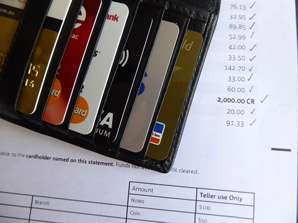
Certified Fraud Examiner Job Description Example
What Does a Certified Fraud Examiner Do?
Certified fraud examiners are professionals who compile and examine evidence to detect possible fraudulent activity in a business corporation such as banks, stores, and insurance.
The certified fraud examiner job description entails gathering and analyzing relevant documents to verify suspicious claims or inconsistencies in paperwork.
In fulfilling their role, certified fraud examiners develop and implement action plans for detecting financial fraud.
They also initiate programs for limiting risk of fraud in an organization. As part of their duties, certified fraud examiners conduct audit of records, financial statements, emails and other relevant documentation that can produce leads in an investigation.
They usually interview witnesses and individuals with useful information about a case. They may also retrieve or review surveillance footage to obtain information as to the identity of suspects and the nature of crime.
Usually, fraud examiners gather and prepare vital evidence for presentation during court proceedings.
They collaborate with attorneys and law enforcement officers to speed up an investigative process.
They also appear during court hearing to testify as an expert witness in a legal proceeding.
As part of their responsibilities, certified fraud examiners liaise with fraud investigators to establish the facts of an investigation.
They ensure proper documentation of investigative findings, facts of a case and statements of witnesses.
They also proffer recommendations to businesses and companies on ways to minimize fraud risks.
Certified fraud examiners usually oversee the training of junior fraud examiners and other fraud detection personnel in an organization.
They conduct periodic evaluation of business operations to identify areas with risk of fraud.
They also conduct negotiations to facilitate recovery of lost funds.
As part of their work description, certified fraud examiners respond to fraud complaints and commence audits to validate or disprove suspicions.
They supervise and direct the activities of an organization’s fraud examination unit.
They also maintain a high level of professionalism and integrity to ensure an investigation is without bias.
They conduct research and studies to increase job knowledge and enhance effectiveness of services.
The fraud examiner job requires a Bachelor’s degree in any of criminal justice, accounting, finance, or law, or in a related discipline.
To succeed in this career, the qualities you need include analytical, communication, and observational skills.
Certified Fraud Examiner Job Description Example/Template
Certified fraud examiners perform various tasks, duties, and responsibilities; shown below is an example of the typical job description they usually work with:
- Oversee the installation of surveillance equipment and tracking devices as part of fraud deterrence strategy
- Initiate action plans for the identification and resolution of financial crimes in an organization
- Interview witnesses to obtain statements useful in establishing the facts of an investigation
- Assess financial records, bank statements and other relevant documentation for discrepancies
- Liaise with attorneys and law enforcement agents to facilitate the apprehension of offenders
- Design and implement procedures and programs necessary for the detection and prevention of fraud
- Provide fraud investigators with useful information/evidence required in establishing the facts of an investigation
- Conduct evaluation and appraisal of business operations to identify areas with risk of fraud and proffer recommendations on ways to adjust accordingly
- Carry out analysis to trace the path of missing funds in order to locate hidden assets
- Utilize specialized computer software and statistical programs to speed up the rate of investigative process
- Provide testimony as an expert witness during legal proceedings
- Prepare and present to appropriate authorities detailed reports of an assessment
- Conduct seminars to educate accountants and business executives on the importance of regular audits and ways to identify a possible fraud
- Participate in educational programs and conferences to improve on existing job knowledge
- Prepare evidences for presentation during court proceedings.
Certified Fraud Examiner Resume Preparation
If you are a certified fraud examiner preparing a resume for a new job, you may apply the duties and responsibilities contained in the sample job description provided above in creating your resume’s work experience section.
The job experience section is a vital part to have in your resume as it shows employers that you have performed the functions of the position in the past and so will be effective on the new job if hired.
Requirements – Skills, Abilities, and Knowledge – for Certified Fraud Examiner Role
If you are thinking of seeking the role of a fraud examiner, the following are the common requirements most employers will expect you to meet to have access to the job:
- Education and Training: To become a certified fraud examiner, you require a Bachelor’s degree in any of finance, accounting, or criminal justice, or in a similar discipline. You also require certification from the Association of Certified Fraud Examiners
- Analytical Skills: Certified fraud examiners are skilled in conducting surveys and analysis of documents to verify suspicions of fraud
- Communication Skills: They are adept at interviewing and interacting with witnesses to establish the facts of an examination
- Observational Skills: They are well versed in detecting fraudulent activities in an organization.
Certified Fraud Examiner Skills for Resume
Again, if you are preparing a resume for the job of a certified fraud examiner, you may use the above information in creating the skills section of the resume.
Having a skills section in your resume shows employers that you possess the right qualities that will enable you to succeed as a fraud examiner.
The above qualities are relevant to the fraud examiner job, and highlighting them in your resume if you have them will give it more impact on employers.
Conclusion
If you are thinking of getting into the fraud examiner career, the duties and responsibilities of the position given in this post will help you to understand what the job entails and to decide if you want to go ahead or not.
And for employers needing a work description for hiring the best certified fraud examiner available and assigning tasks to them, the job description template for the role also given in this article will be very useful.
Did this post give you a better understanding of the duties and responsibilities of a certified fraud examiner? Please leave a comment in the box below.












